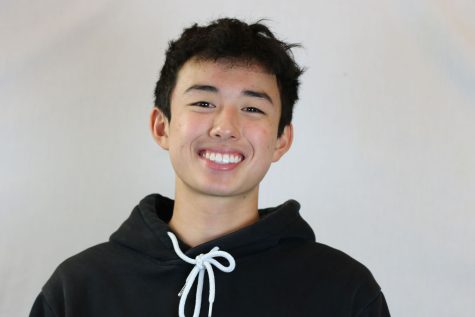New Year, New Theme
A new schoolwide theme has emerged as an offshoot of the school’s strategic plan.
Photo: Ethan Matsubayashi
Students mill around the welcome back sign in a hallway. This year, University Prep is putting an emphasis on “belonging.”
As the new year kicks off, University Prep administrators are watching the student body closely, searching for signs that their new programming is working. For the first time in its history, UPrep is implementing a yearly “theme,” with this year’s emphasis on “belonging.” The them, which is meant to unify students and ease them back into the community, was inspired by the school’s yearly strategic plan.
New Director of Diversity, Equity, Inclusion and Belonging (DEIB) Taylor Kanemori helped design the theme, and believes that it is both important and well-timed.
“Coming back from being in a weird couple of years with COVID, we were thinking how we can come back as a community and make sure we are intentionally holding conversation and space and room for each other,” Kanemori said.
Strategic plans are reestablished annually, with the goal of clarifying administrators’ hopes and expectations for the school, according to Kanemori. Part of clarifying that vision, Kanemori said, is putting school values into writing.
“New strategic plans usually look three to five years and beyond, at where we want to be,” Kanemori said. “We went on a senior leadership team retreat, which was in August, and we discussed–coming from communications– that they would love a theme that we could write.”
In cooperation with the communications team, the DEIB office oversees the execution and application of this theme.
“What is this year going to look like? How are we going to bring this community together? With ‘belonging’ already being one of the guideposts for the strategic plan…the senior leadership team felt like ‘belonging’ as kind of a natural theme coming out of the work that we were already discussing at the time,” Kanemori said.
At the beginning of the year, all faculty reviewed the strategic plan as well as the new theme, including new counselor Cindy Taketa. As part of her work, Taketa is instrumental in ensuring the feeling of safety and wellbeing at UPrep. The new theme is critical to her work.
“One of the core principles of counseling is building rapport,” Taketa said. “We were all just surviving for 2 ½ years, and hopefully this is a turning point so we can all get back on track, and figure out what’s best for us as a community.”
Due to the broad scope of this theme– all faculty were instructed to read the theme and strategic plan– the idea of “belonging” was left intentionally open-ended, such that each faculty member could interpret it within their respective role.
“‘Belonging’ came out of the idea of wanting a DEIB focused guidepost,” Kanemori said. “But we want it to not be narrow; not just diversity, not just inclusion, but really what it means to be a member of this community and really belong to this community.”
Taketa’s interpretation of the theme places student-faculty interaction as one of her top priorities.
“I took it as an invitation to figure out what ‘belonging’ means to me and how I interact with students,” Taketa said. “One thing that came to mind was that I wanted students to meet me and feel welcome– that they could come talk to me– because as a new person you have to.”
Measuring “belonging” will be difficult, and Kanemori acknowledges the challenges that lie ahead in determining if implementing the theme is successful.
“Part of my work is… figuring out what that does look like in the day-to-day. The little things, like connections you make with your teachers, both formal and informal, can create that.” Kanemori said. “How we intentionally put that into practice is something that we are still figuring out.”
While discernible results may not be felt yet, Taketa has high expectations for the future.
“Part of the outcome is, at least from a staff perspective, knowing that somebody, especially an adult, cares about us,” Taketa said. “When the teens come back this year and have a year readjusting to school, they know that all the adults and kids are working toward the same thing.”

Ethan Matsubayashi is one of the print editors-in-chief of the Puma Press. He has been on staff for three years and is excited to explore innovative formats...


